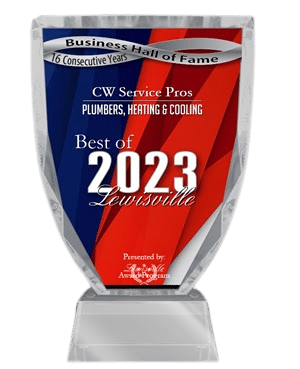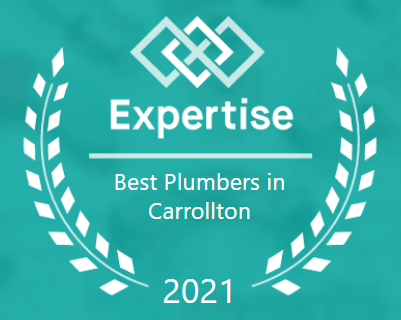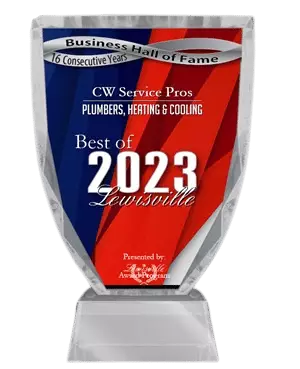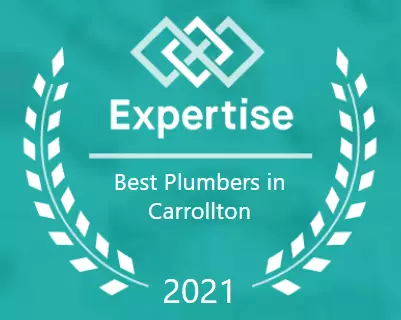When it’s time for your family to purchase a new water heater, it’s important to get one that is energy-efficient. Not only is it better for the environment, it will save you money on your energy bills.
How to Know When It’s Time to Buy a New Water Heater
There’s no good time for a water heater to fail, but it always seems to break right before you desperately need a hot shower.
But most water heaters don’t just stop working out of nowhere. There are signs you can look out for that reveal it needs help:
- You have no (or you have less) hot water available.
- The heater is 10 to 15 years old (the approximate lifespan of most water heaters).
- The water is rusty or contains odd odors, tastes, or colors.
- The tank itself is rusty.
- There are leaks or standing water around the heater.
- Your energy bills have suddenly gone up.
If you experience any of the signs above, call a professional plumber! Doing so right away may actually save your water heater, so you don’t have to replace it.
Sometimes, though, nothing solves the problem like a new water heater. A licensed plumbing technician will be able to let you know.
When you’re on the hunt, here’s how to make sure your new water heater is energy-efficient.
Types of Energy-Efficient Water Heaters
Finding the right water heater depends on your needs, your family, and your home, but some are more energy-efficient than others.
Conventional Water Heaters
Most conventional water heaters are the least energy-efficient choice, but they remain the most popular selection due to their lower price and installation costs.
They hold anywhere from 20 to 80 gallons of water, depending on their size and work by constantly heating the water. Hot water leaves through the top of the tank, and cold water enters the tank and is heated up. This results in a hot water heater that is consistently on, meaning energy is expended even when no one is using the water. This is called standby loss.
What’s the good news? The energy efficiency of conventional tank heaters has improved by leaps and bounds over the years, thanks to evolving technology.
Here are some tips to finding an energy-efficient conventional tank water heater:
- If you have a larger family (over five people), consider gas rather than electric. Gas has a faster recovery rate (the length of time it takes water to recover to the desired temperature).
- If your family has fewer than five members, consider electric. It has a longer lifespan than gas and requires less maintenance. An electric pump heater is one of the most efficient electric heater options.
- Read the yellow sticker before purchasing your heater; it will give you all the information you need about energy usage.
Other considerations when buying a tanked unit?
- Warranties
- Quality of the unit
- Life expectancy of the unit
- Parts used in the construction of the unit.
Not all tanked units are alike, and even if a heater is made by the same manufacturer and appears to be the same, there may be a difference in what a professional plumber purchases and what is available in a box store. Units sold in box stores often have plastic drain valves, which, when heated for long periods of time, are more prone to failure. For about the same cost, you can get a better unit when you purchase it from a plumber, and you’ll be covered by the plumber’s installation warranties!
Tankless Water Heaters
Unlike conventional water heaters, tankless options take up much less room in the house, making them great for:
- Smaller homes
- Smaller families
- Apartments
- Areas that you need to recoup the storage space
Instead of heating the water constantly, a tankless water heater only warms up water as it is needed.
Tankless water heaters have been shown in some cases to save homeowners about 25% on water heating expenses every year, although they do cost more upfront for the unit and the installation.
Running a tankless unit uses more gas to heat the water on-demand, so your energy savings will depend on your usage. Since there is an endless supply of hot water, you might be tempted to use more, since there is no fear of the supply ending. This is a great convenience but may not always lead to energy savings.
Choosing a Size
Choosing a size is extremely important when you want your water heater to be energy-efficient. You don’t want one that is too small and doesn’t have enough hot water for your family, but you also don’t want one that is too large and wastes energy heating up unused water.
If you are choosing a conventional hot water tank, the easiest way to determine how large a tank you need is to think about your family and their water habits. People tend to use the most water in the morning for cooking, showers, dishes, brushing teeth, and more.
Here is the math formula to figure out exactly how large of a tank is required: Count the number of people in your family, and add 1. If you have a family of 5, the number would be 6. Multiply 6 by the number of gallons each family member will use during that morning period; for example, 12. In this case, the final number is 72. The tank size should therefore be in the 70-gallon range. Instead of getting one larger unit, you can also get a combination of two units, use a tempering valve to increase the normal output capacity of hot water, or install a tankless unit.
If you’re unsure how many gallons your family uses, take advantage of this tool.
Tankless water heaters are rated by max temperatures, not size. Almost all families need to purchase a unit that heats up to approximately 120 degrees.
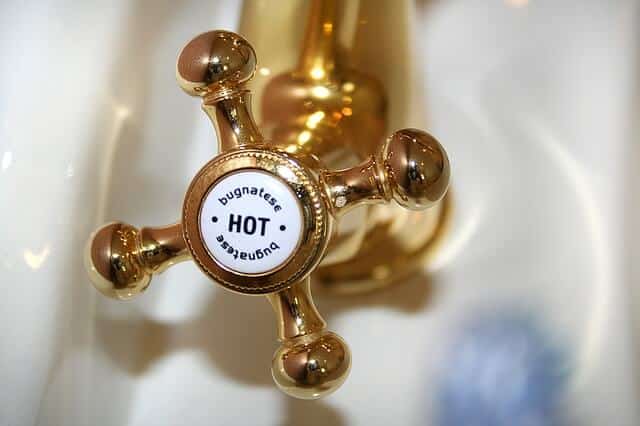
Pro Tips When You’re Out Shopping
Even when you know the size and type of water heater your family needs, shopping for one can sometimes get overwhelming because of the number of choices. One of the easiest ways to check if a water heater is energy-efficient is by reading the energy factor rating or EF rating.
The EF rating is used to determine if a water heater is an ENERGY STAR item. For example, a rating of 0.5 means the heater is 50% efficient. Fifty percent of the energy will be used to heat the water, while the remaining 50% of energy is wasted. The higher the EF rating, the more energy efficient the heater is.
Here are some requirements for a water heater to be labeled ENERGY STAR:
- A conventional gas water heater must have a minimum 0.67 EF rating.
- A conventional electric water heater must be above 2.00.
- A tankless gas water heater must be rated over 0.90.
Warranties are also required for the water heaters to be rated ENERGY STAR. Most require a six-year overall warranty, but tankless gas heaters require a five-year warranty on parts. Requirements may also include safety ratings, first-hour ratings, standby loss, and more.
If you’re not sure what type, size, or ENERGY-STAR-rated water heater is best for your family, speak to a professional! At CW Service Pros, we can help you determine which energy-efficient water heater is right for you, your family, your home, your wallet, and the environment. Give us a call at 972-395-2597.







